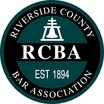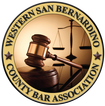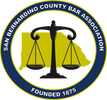|
The Sun posted a recent article discussing a Riverside man’s involvement in a hit and run incident. Dustin Michael Garrett was arrested for suspicion of drunk driving and causing bodily injury to multiple victims on a Saturday night at around 9 p.m. Redlands police say that Garret struck 27-year-old Dain Nuu Wells with his vehicle on Colton Avenue near Herald Street, Wells was riding his skateboard when he was struck and thrown onto the hood of Garrett's car as he was speeding down the street. Garrett fled the scene of the incident and collided with three other vehicles in the process. After colliding with the third vehicle, Garrett abandoned his vehicle and fled on foot until he was caught by police at Empire Bowl near Colton and New York Street. He was booked at the West Valley Detention Center in Rancho Cucamonga for DUI and Hit & Run, but was later released.
Fortunately no lives were lost because of this reckless driver’s actions, but that is not always the case when a drunk driving accident occurs. It is very unfortunate to think about but accidents caused by drunk drivers taken lives across this state at a staggering rate. When we send our loved ones out into the world, we always hope they will return home safely but some families are not so fortunate. If you know you will be drinking, please do not get behind the wheel or a vehicle. If you are under the influence, call a sober driver to pick you up so you can be part of the solution and not the problem. Always buckle up while you are in a vehicle and help the streets be a less dangerous and unpredictable place. You can make a difference. Defending Your Driver's License Against the DMV
When accidents caused by drunk driving occur in California, the DMV’s first reaction against the driver is to suspend or revoke their license. If a suspension action begins, it is the driver’s responsibility to schedule an administrative hearing to fight for the preservation of their driver license. This process can be a difficult and confusing challenge if attempted without guidance. It is wise to do your research and enlist the assistance of a team that can expertly take on your case and ensure you an opportunity to prevail.
California Drivers Advocates is a team of DMV Defense Experts that can help defend California drivers at the DMV when their license and driving privileges are at risk of suspension or revocation. Rob Collier is the President and CEO of the business. Visit Rob and his team at their website or contact them at 1-888-281-5244. They will be happy to answer any questions you may have at no obligation A 26 year old man in Los Angeles was arrested after a DMV investigation found he had been posing and a DMV employee and taking money in exchange for the promise of removing license suspensions and fixing other renewal fee related issues. The man had posted ads on websites such as craigslist and was charging victims between $200-$400. While investigators were serving a warrant they seized his phone, which was continuing to receive calls from victims requesting their money back. Many of these victims were located in the Inland Empire. The DMV investigators report he had learned of the scam from others, so they believe the scam may be active in California as well as Nevada. The DMV reminds people to always be aware of the way they are providing money to people, where they found the service and if anything seems out of the ordinary to do a simple internet search to learn a bit more. To read the original DMV press release click here. While California Drivers Advocates represents California Drivers at the DMV in Fraudulent Activity Hearings these above actions depicted are not DMV hearing matters, but rather subject to criminal prosecution. If you or someone you know is facing a license suspension or revocation, California Drivers Advocates can help. They also host a resource website for California Drivers to learn about defending their driver license found here.
A press release by the California DMV on May 4th, 2017 detailed new requirements for California drivers who were seeking to obtain a commercial driver license, or those who held such licenses and were looking to renew them. The new requirements were specifically related to the acceptable forms of documents used for applying or renewing commercial licenses. The press release stated. “All new commercial driver license applicants will be required to provide the DMV with proof of California residency as well as proof of U.S. citizenship, lawful permanent residency, or legal presence.” Despite the California DMV requiring proof of legal presence since 1994, these new requirement changes reduce accepted documents in an effort to align to the Federal Government’s requirements which were adopted in 2012. For a complete list of accept documents to verify legal presence in California, view the DMV’s website here. California Drivers Advocates is a team of DMV Defense Experts who represent California drivers at the DMV. Their services include special certificate hearing defense for ambulance drivers, tow truck drivers, school bus drivers and more. Learn more about California Drivers Advocates and their Expert DMV Defense.
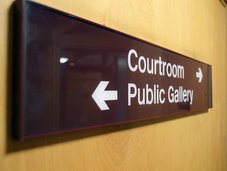 Whenever a trial date is set, a party may demand simultaneous exchange of expert witness information (Code of Civil Procedure § 2034.210). If a party fails to comply with the exchange of expert witness information, and the other side objects, “the trial court shall exclude from evidence the expert opinion” of said witness. (Code of Civil Procedure § 2034.300) The recent case of Perry v. Bakewell Hawthorne, LLC, (2017) Cal. Lexis 1351, raised a novel issue as it relates to the above sections. Perry was a personal injury matter wherein the plaintiff fell on defendant’s property. Defendant moved for summary judgment, which was set to be heard after the exchange of expert witness information. In his opposition, plaintiff used the declarations of two experts to demonstrate that the stairs he fell on were in disrepair and did not comply with building code and industry standards. The problem was that neither of these two declarants had been identified in the expert witness information exchange. The issue became whether the exclusionary rule of CCP § 2034.300 applied only to the use of those experts at trial or whether it also applied at the summary judgment stage. Ultimately, the Supreme Court of California held looked to the Section governing motions for summary judgment – CCP § 437c. They held, Section 437c(d) requires that affidavits and declarations submitted in summary judgment proceedings “set forth admissible evidence.” They held that when the court determines an expert opinion is inadmissible because disclosure requirements were not met, the opinion must be excluded from consideration at summary judgment if an objection is raised. In this matter, because the declarations attached to the opposition to motion for summary judgment were by two experts whom would be excluded from testifying at trial, their declarations were similarly inadmissible to refute the defendant’s motion for summary judgment. Published By: Jean-Simon Serrano Photo Credit: https://www.flickr.com/photos/surreynews/
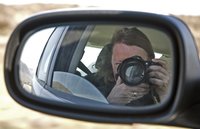
At Heiting & Irwin, we advise Californians involved in a car crash caused by another person to take photographs at the scene of the crash so long as they are able to do so without causing another person’s physical safety or their own safety to be jeopardized. Some may wonder, however, just how important these photographs actually are to the resolution of their Riverside car crash. The answer depends on the quality and quantity of the photographs themselves.
Taking Good Photographs After a California Car Crash
Photographs in a car crash case preserve a crucial moment in time for your attorney and any experts who may be needed to evaluate your crash. The old adage is true: While your words and statements can paint a picture of the accident’s aftermath, a picture truly is worth a thousand words (see, for example, this case).
However, the usefulness of the photographs you take will depend on both the quantity and quality. In general, it is always advisable to take photographs of the car crash scene. However, these photographs may not be of much help to your attorney if they are not of sufficient quality. Quality photographs that are most helpful include those that:
You should also take care to ensure these photographs are properly archived so that you always have a copy available to you in the event other copies become lost, damaged, or destroyed. Do Not Take Photographs if Doing So Jeopardizes Your Safety
While photographs can be extremely helpful in increasing your chances of recovering compensation in your case, you must not jeopardize your own safety or cause further injury to yourself or anyone else just to take photographs. Not only will this exacerbate your losses, but it can negatively impact your ability to recover full compensation.
As soon as possible, contact Heiting & Irwin for further assistance and representation. Heiting & Irwin is a Riverside car crash law firm committed to helping those injured in collisions caused by the negligent actions of others. We use any photographs our clients are able to take along with our knowledge and investigative resources to build a powerful and persuasive case for compensation for our clients. Let us help you or your loved one obtain monetary damages for your injuries by calling (951) 682-6440. Alternatively, you can complete our online form for assistance. Photo Credit: https://www.flickr.com/photos/ben124/
 The process of vetting an attorney is already stressful for the person who's never hired one, add fake lawyer reviews into the mix and all hell breaks loose. If you've come across this article, you've probably searched something like "how to tell if a lawyer review is fake" or similar. Chances are good you're already suspicious that some attorneys are beefing up their profiles with garbage reviews. The stakes are high for an attorney, one client gained, (or lost), from an Internet search can be worth thousands of dollars or much more. So it makes sense that if they want to be perceived in the best possible light an attorney might try to "influence" their ratings on Yelp, Google, Yahoo and the numerous other rating & review websites. So here's how to spot the fakers:
That being said here's the lesson learned: Don't rely on one source of information when choosing an attorney. Do numerous searches, check the state Bar website for reports of unscrupulous behavior, interview more than one attorney, get a referral from a trusted friend or family member if possible and make an informed decision.
If you're looking for a lawyer in the Southern California area, here's a good resource on how to start your search, and if you'd like to research a local San Bernardino or Riverside lawyer and click to all their reviews from one spot, try our directory now. Please comment below if there are any methods I've missed, and if you're an attorney chime in and tell us your perspective on lawyer review websites.  You may have stumbled across this article because you have no idea where to turn to find the best lawyer for your case. It seems that every attorney's website proclaims that THEY'RE the firm with the best track record and best results. Did you expect their website to say anything else? I've written before on strategies to choose your lawyer, which is a little different than starting the process to initially vet your lawyer... after all, before you talk to your potential attorney how do you research them to make sure they're even worth your time? In this article we've listed, in no particular order of importance, the top ways to thoroughly research your lawyer before you pick up the phone, and more importantly their relevance to your decision making process. It's important that you not put too much weight on any one website over another, but look for reliable, consistent and credible information. Martindale-Hubbell - This is the oldest directory and peer review rating system in the U.S. Most lawyers know about it, but most people looking for an attorney for the first time have never heard of it. Although many lawyers now consider Martindale-Hubbell out dated and "passé", it still has arguably one of the best methods for attorneys to rate other attorneys (also referred to as "peer reviews"): Highest - "AV Preeminent", Middle - "Distinguished", Lowest - "Notable". (Here's their methodology). It's important to note that most attorneys are not rated at all, so technically a non-rated attorney could potentially be a much better lawyer than even the highest rated attorneys. A lawyer must request or be nominated to participate, and some simply don't like the outcome. To add a bit to the confusion, some incredible attorneys choose to opt out of the process altogether. This could easily be the topic of a entirely separate blog. Yelp - This one is a bit obvious to some, but not to others. Most people think of Yelp to find a great restaurant, but not necessarily an awesome lawyer. If you look through the reviews you can get a good sense of how an attorney interacts with their clients. Most people who've hired an attorney and had a bad experience have no problem tossing their attorney-client privilege by publicly complaining about it. However, take these with a grain of salt. When a case involves someone's freedom, family or money people can become vindictive if the result is less than perfect - even when their lawyer did everything possible to get them an excellent result. Not to mention that anyone can write a Yelp review, and the person writing the review might have been the defendant in a case pursued by the plaintiff's attorney they're rating - just to be spiteful and harm their practice. Avvo - Avvo is a more popular directory and rating system among lawyers. It's very easy for a lawyer to publicly rate another lawyer, and for clients to post reviews. However, their interface is very long to scroll through and, it's our opinion that their peer review system is incredibly easy to game and manipulate. For instance there are some lawyers that have hundreds of reviews and endorsements from other attorneys... hundreds. Do you think lawyers like each other that much? If you look closely and long enough, you'll find that a pattern emerges and some attorneys have "traded" positive peer endorsements to help boost their individual rating, (read one lawyer's excellent rant here). So while we think their rating system is less than credible, it makes up a "spoke of the wheel" in finding a lawyer to talk to. California Bar Profile - Every attorney must maintain a public profile with their official name, address and telephone number. Also, their profile will disclose if they were ever disciplined for misconduct, suspended or disbarred. Although this won't give you any ratings or reviews, you can at least see if they've ever had trouble with the state Bar. Google - Duuuh. Seriously, if you do a name search and add the words "complaint", "review" or "rating" you can find almost anything positive or negative a person has had to say about a lawyer. That search would look something like "attorney John Q. Sample complaints" and brew a pot of coffee. The thing to keep in mind here is that there are multiple ways for you to validate an attorney and you shouldn't rely on just one. That's one of the reasons we developed InlandEmpireLawyers.com, an attorney directory for San Bernardino and Riverside counties. We decided early on to link directly to all of these resources directly within an attorney's profile. This makes your process much more efficient because you can quickly access each of these websites for a local attorney without having to take the time to do the legwork on each website. If you're an attorney what are your thoughts? Is there a better way than this to research a lawyer?  When you pay a lawyer a "retainer" essentially you're paying the attorney in advance so they have a funds to bill hourly against. California Bar Rules of Professional Conduct 4-100 requires that these funds are segregated from the attorney's personal accounts and set up in a trust account. As the attorney works on your case, they bill you and pay themselves with funds from the retainer. A common misconception is that once you've paid a retainer you're done paying for your case. Unfortunately that couldn't be further from the truth. A retainer is basically an estimate of the dollar amount that the attorney thinks they'll initially use given the knowledge they have about your case. Every time a lawyer reads an Email, picks up the phone, shows up in court or writes a letter on your behalf they're billing against your retainer. If your matter concludes with a balance left in your trust account you will receive a refund on the unused portion of the retainer. If they have used the majority of funds from your retainer and still have work to do, you'll have to make another payment into your retainer trust. Most attorneys use this method of billing unless they are doing "flat fee" work, (usually matters with a very predictable amount of time & work), or contingency cases, (they get paid a percentage of your recovery). Usually criminal defense, family and business lawyers charge with a retainer due to the unknown amount of time and resources they'll need to dedicate to your case. Often bankruptcy and estate planning attorneys charge a flat fee because most of the work is forms and filing driven, and often personal injury attorneys, (and sometimes business & real estate litigation matters), warrant a contingency fee - no payment if no recovery. No matter what the payment arrangement, every lawyer will require a retainer agreement or some sort of letter of engagement that states you are hiring them. What if I have no money for a retainer? Depending on your case and individual circumstances you may not need the immediate retainer. For example: If you're suing someone regarding property, (or maybe going through a divorce and the sale of real estate with equity is eminent), you might negotiate for the attorney to be paid from proceeds of the sale. Also, ask if the attorney will accept a payment plan - many attorneys are willing to take your case if you are willing to make steady monthly payments. You should discuss this with your prospective lawyer as every situation is unique. We hope this information is useful and encourage you to share your experience in the comments section about a time when you paid a retainer and if there were any surprises. |
IE Legal Hub
Local legal information, published by local Inland Empire lawyers. Are you a local attorney?
Archives
July 2023
Categories
All
|

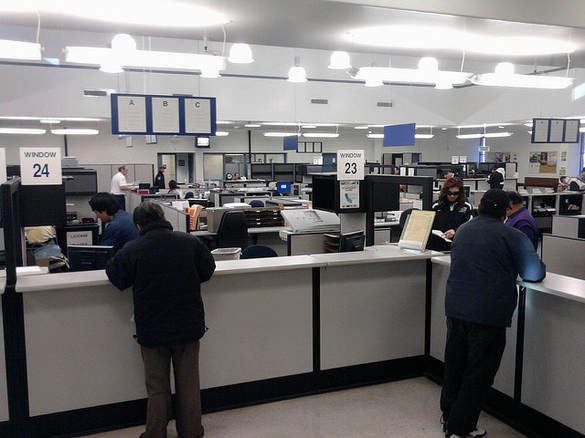
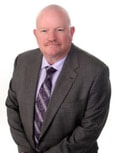




 RSS Feed
RSS Feed

